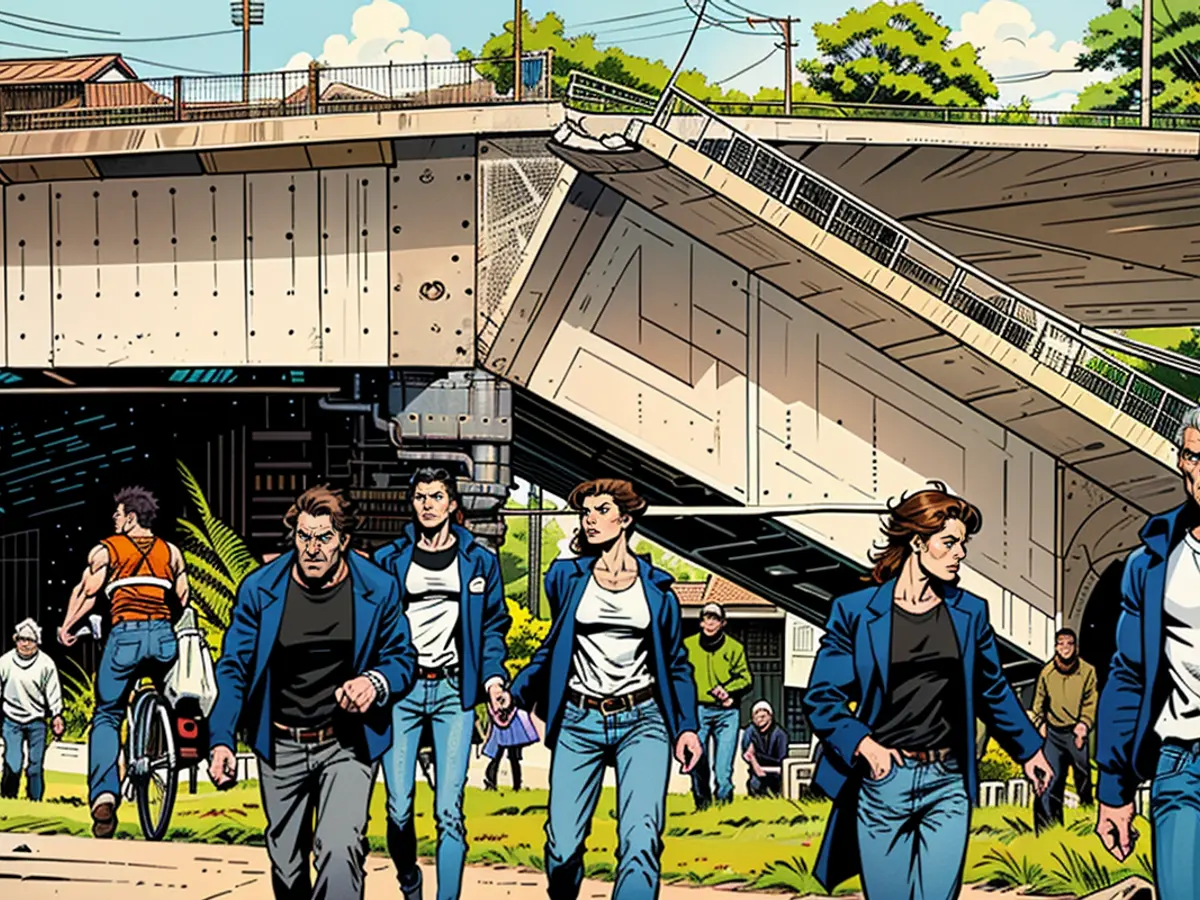The demise of Carola Bridge underscores the state of decaying infrastructure.
There's growing concern over the state of bridges in Germany, following the partial collapse of the Carolabrücke in Dresden. There's a need for substantial investments to address this issue, with Dresden specifically requiring a plan to reconstruct this crucial traffic route, given its current financial stress.
Bridge specialist Martin Mertens highlights the poor condition of several large bridges in Germany, particularly those built before 1980. He tells the German Press Agency (dpa), "In essence, we can say that all bridges built before 1980 are our problem children." Unfortunately, this is a significant number due to the post-war building boom. Politics needs to intervene, as Dresden's bridge incident suggests, "It's five past twelve."
The German Association of Towns and Municipalities advocates for an "infrastructure investment offensive" due to the poor condition of the bridges. The local authorities lack the necessary financial resources for urgent repairs. "The collapse of the Carolabrücke in Dresden vividly depicts that Germany is operating on borrowed time," says André Berghegger, head of the association, to the Funke media group.
Even the president of the Central Association of the German Construction Industry, Wolfgang Schubert-Raab, agrees that investments are essential, as per his statement. He views the Dresden collapse as a "tragic symbol of German infrastructure" that highlights the immediate need for action.
The German construction industry's main association emphasizes that bridge renovation in Germany should be given top priority. "The incident clearly demonstrates the vulnerability of our transport infrastructure and the crucial role bridges play," says Tim-Oliver Müller, head of the association. The focus should be on these vital arteries. This is not just an issue for Dresden, but a broader political and social responsibility.
Federal Transport Minister Volker Wissing mentioned in the Bundestag budget debate that over nine billion euros will be allocated for investments in federal highways and bridges next year. Regarding the Carolabrücke collapse in Dresden, he explains that it's the responsibility of the local authorities and does not affect the federal budget. "But one can see from this bridge how perilous it is if infrastructure is not properly invested in."
No external factors are suspected in the Carolabrücke collapse, which occurred in the early hours of Thursday. Approximately 100 meters of the bridge, used for tram tracks, a pedestrian and bicycle path, collapsed into the Elbe. Fortunately, no one was injured. The remainder of the bridge is also deemed at risk of collapse. The cause remains unclear, but Professor Steffen Marx from the Institute of Structural Engineering at the Technical University of Dresden suspects corrosion played a significant role.
Currently, efforts are focused on ensuring traffic safety, according to Marx. "Caution is needed, as every person approaching, under, or on top of the bridge is putting themselves at risk," says Michael Klahre, spokesperson for the fire department.
Planned renovation by 2025
The bridge - one of Dresden's major traffic arteries - has been marked for renovation for a long time. Parts of the bridge have already been renovated for car traffic in recent years, with the renovation of the now collapsed section scheduled for next year.
The Green Party's city council faction has expressed concerns about substantial impacts on Dresden's city traffic "for several months, if not years" in a statement. They also worry about the financial burden this accident poses to the state capital. Chairwoman Agnes Scharnetzky calls for talks with the federal and state governments, as "it's clear that the city cannot bear this burden alone."
The planned renovation of the Carolabrücke in Dresden, a major traffic artery, was scheduled for next year, but the collapsed section required immediate attention. The Green Party's city council faction in Dresden has voiced concerns about potential traffic disruptions and financial burdens resulting from this incident, urging talks with higher levels of government.






